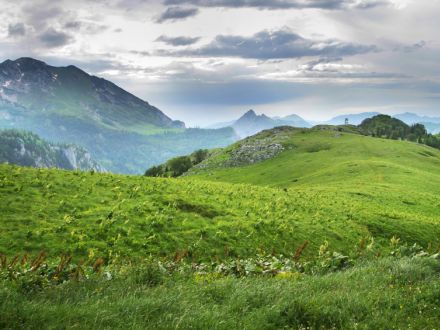Mountains themselves are fascinating creatures. At once frightening, magnificent and welcoming. The mountain as a spiritual or sacred site accompanies the written history of mankind. In the early days - probably due to a lack of technical equipment - mountains were largely inaccessible. Because of this very reason the distant peaks were filled with gods and spirits by the human mind, thus forming a mental barrier to conquering these mountains. In ancient Greece, for example, Mount Olympus had been the home of the gods because, being almost 3,000 meters high, it was unconquerable for men - even today its highest peak, Mytikas, still challenges climbers.

In the world's best-known book the Bible, God passes the Ten Commandments to Moses on Mount Sinai (2,285 meters). Also in the Bible, after the flood Noah’s ark came to rest on the peak of Mount Ararat (5,165 meters). And Jesus' famous speech, the Sermon on the Mount, was delivered on the top of the Mount of Beatitudes.
However, Eastern cultures in general give mountains separate personalities. Tibet’s Kailash Peak is not only a holy pilgrimage site but ‘he’, the mountain, is itself a deity. Westerners were baffled by the fact that the locals will not climb this mountain. The mountaineer Heinrich Harrer, among others, writes about this in his book ‘Seven Years in Tibet’.
The names of mountains are usually the same as the resident deity or spirit of that place. In China various gods and dragons live in the mountains. Since about three-quarters of the country is mountainous this ‘mountain-cult’ is very much present. In feng shui for the proper energy flow the country's leaders should locate the country's Parliament on a hill or mountain. In India Mount Meru is considered to be the centre of the world.
The mountain has been a symbol for thousands of years, the residence of deities and knowledge, the symbol of stability and continnuity and even the centre of the world. It is a sp